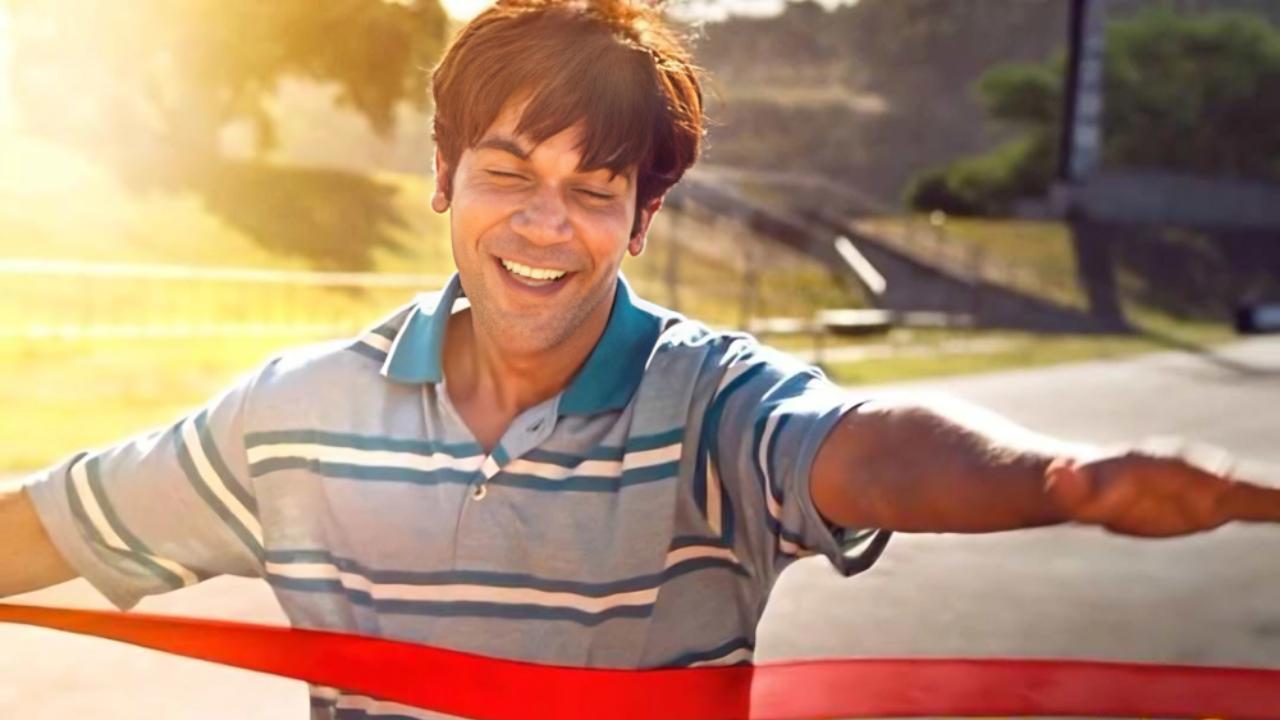I know love is blind; so is justice, etc. Talent certainly isn’t. You should be able to sense Rao’s brilliance, even on braille

Srikanth Movie Review
Srikanth
Cast ( voices): Rajkummar Rao, Jyothika, Sharad Kelkar
Directors: Tushar Hiranandani
Rating: 3/5
ADVERTISEMENT
Up until this film’s half-time, I felt I could’ve simply google-searched this biopic. Only, I wouldn’t find actor Rajkummar Rao in it. That is, Rao, playing a visually impaired Srikanth Bolla, on whose life this engaging, eponymous corporate film is based—linearly detailing a series of professional milestones, that made Bolla go from a poor boy in Machilipatnam, to MIT in Boston; eventually setting up an industry that employed other visually impaired.
Making him an icon of sorts. Fit enough for a Bollywood biopic. Like several such that already exist, and will continue to. It’s not that the achievements are minor. They’re frickin’ something else!
Consider a math-geek, into sport, who made it to the Indian team for blind cricket—hitting some sort of a world record at baseball in the US—after becoming an agent of change in law, back home in India. Wherein the visually impaired weren’t even allowed to pursue science in college.
Not that it’s my concern, at the moment, as an audience, to fact-check each feat. It’s just that there are so many Wikipedia entries to film, that there isn’t enough time to ever pause, and take stock of the man behind those moments.
You’ve got to remain alert to them yourself. For instance, the opening scenes, where you must wonder, if parents would really kill off an infant, if they turn up blind into the world? Bolla’s folks nearly did.
Or that bit, when Bolla gets kicked out of blind school, because he rats on the authorities. He’s on the street, getting chased down by a stray dog.
For all the animal-lovers’ virtue-signalling defense of strays, who deserve a better space themselves—one seldom worries about how they could affect the vulnerable, such as kids, homeless, and the disabled, on streets.
Rao’s helpless lead character is shattered, broken—lifted up by a Good Samaritan teacher (Jyotihka), who takes him under her wings. He flies abroad.
This is a very special human bond. Just glossed over, however, in pursuit of the next life-event to suitably report on the baller life of Bolla—a long-distance love-interest (Alaya F), helpful business partner (Sharad Kelkar), the ex-Prez APJ Abdul Kalam…
This is why nothing emotionally sticks. Until the final few minutes of the film, for sure. What are the GOAT movies you can instantly recall, where the protagonist is visually impaired? Let me go first.
Undoubtedly, Naseeruddin Shah in Sparsh (1980). Remember the restaurant outburst scene from that Sai Paranjpye film? Likewise, you can’t erase from memory, Al Pacino’s “hoo haa” refrain, besides zipping down New York streets in a car, or the chilling courtroom sequence, from Martin Brest’s Scent Of A Woman (1992)?
That’s what this movie, on occasion, lacks—staging of memorable drama. Too lazily structured that it is, around covering scenes, and there are far too many to register, or ever reflect on.
I’m going home with the trivia that Nagpur’s Haldiram sponsored Bolla’s education abroad. Gonna to buy an extra pack of bhujia, just for that!
Speaking of courtroom scenes, there’s one in Srikanth as well. A college principal denies him science education because, the gent argues, the boy can’t read regular books. Wouldn’t that be true for books on humanities, too?
Is that why the visually impaired had, per force, remained blind to college-level science, thus far? And that Bolla became the first such international student to enroll at MIT? Well, that’s what google searches are for, if you have the time, or are suitably inclined.
I’d rather stick to this movie, directed by Tushar Hiranandani. First encountered Hiranandani’s work as a writer, along with his partner Milap Zaveri, when they scripted, among several movies thereafter, Masti (2004), which was such a mast-watch. As against the franchise that followed.
As director, Zaveri (Satyameva Jayate, Marjaavaan) went on to attempt blockbusters that test bounds of reality. This is Hiranandani’s third biopic. The last one, Scam 2003 (series on Sony LIV), was a totally unironic, dull take on the life of well-known stamp-paper crook, Abdul Karim Telgi. The first, Saand Ki Aankh (2019), was based on two female Tomar sharpshooters, made famous already, through Aamir Khan’s talk-show, Satyamev Jayate. Furthering the tribute, the song Papa kehte hain from Aamir’s Qayamat Se Qayamat Tak (1988) is this movie’s recurring background score.
Srikanth works best of the lot, because I’d never heard this eye-opening account, until this movie. There is a gentle element of surprise, rather than recognition. It could work just as well on TV/OTT.
Unlike the last Hindi biopic we watched, Imtiaz Ali’s Chamkila (2024; on Netflix), that plays so beautifully with form and structure, it deserved the big screen; no less.
This one is centred, foremost, on Rao’s phenomenal performance. That’s what draws you in, and keeps you there—watching the lead actor convincingly immerse himself in a part, that you never wish for the party to end.
I know love is blind; so is justice, etc. Talent certainly isn’t. You should be able to sense Rao’s brilliance, even on braille.
 Subscribe today by clicking the link and stay updated with the latest news!" Click here!
Subscribe today by clicking the link and stay updated with the latest news!" Click here!







